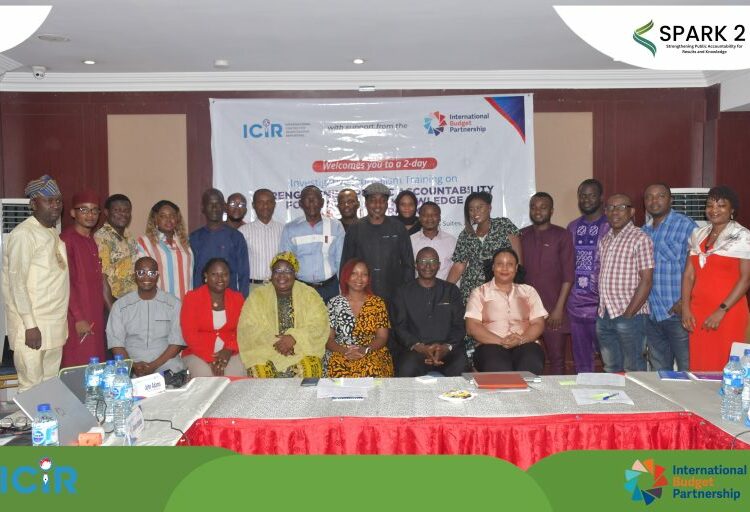The International Budget Partnership (IBP), the world’s leading nonprofit organization promoting more responsible, effective, and equitable management of public money, has tasked Nigerian journalists on gender sensitive reporting for its Strengthening Public Accountability for Results and Knowledge (SPARK 2) project.
The IBP country director, Dr Olayinka Babalola, who gave the charge during a two-day workship, in Abuja, posited that gender sensitive reporting is the practice of producing media content in a way which is sensitive to gender inequality, while portraying women and men fairly.
“We will be adopting a systemic change approach in the SPARK 2 project. We want to focus on people that will be directly impacted by our intervention. We need to identify the people that are directly affected.
“Another perspective to this is that, we will be working with people that are marginalized, like people living with disabilities, widows and young women who are finding it difficult to access maternal care. We have to use the gender lens in approaching our work and in identifying the communities that are affected,” she advised.
The IBP is partnering with the International Centre for Investigative Reporting (ICIR) on SPARK 2 project.
The executive director of ICIR, Dayo Aiyetan in his remarks, noted that the aim of the project tagged SPARK 2, is to examine factors contributing to the appalling state of maternal healthcare in Nigeria, despite government intervention, and systemic issues affecting the agricultural production by smallholder women farmers through a systems-level approach.
Addressing the 20 journalists selected from the states of Oyo, Anambra, Niger, Jigawa, Nasarawa, Kano, and Ogun across print, electronic and digital media for the training, Aiyetan noted that the project will build the capacity of journalists to hold power bearers, policymakers, and implementers accountable by publishing focused special and investigative reports and documentaries on delivery end at Primary Health Care.
He however urged the selected journalists to embrace an evidence-based reporting approach in their reports, saying every claim must be evidence-based. “Investigative reporting exposes wrongdoing and corruption that affect the public interest.”
The selected journalists are Royal Ibeh, Leadership Newspaper; Vincent Yusuf of Daily Trust; John Adams, The Sun Newspaper; Justina Asishana, The Nation Newspaper; Bawas Khadija Ishaq, Liberty TV; Nasiru Yusuf Ibrahim, Abubakar (Rimi TV); Ibukun Emiola (NAN); Akinwale Aboluwade (Oyo Reporters); Emma Elekwa, The Nation; Ikenna Obianeri, Punch; Alfred Ajayi, FRCN; Nurudeen Akewushola, ICIR; Lawrence Nwimo, Ikenga Online; Dan Atori, New Telegraph; Ibrahim Hamzat Abaga, Transcontinental Times; Omoniyi Busuyi Kolawole, Cool Fm, Wazobia Fm, Arewa Radio, Kano; Stephen Enoch, Stallion Times; Oladejo Adebayo, Pharmanews; Agboluaje Rotimi, The Guardian and Ojo Isaac Olufemi, Splash FM.











